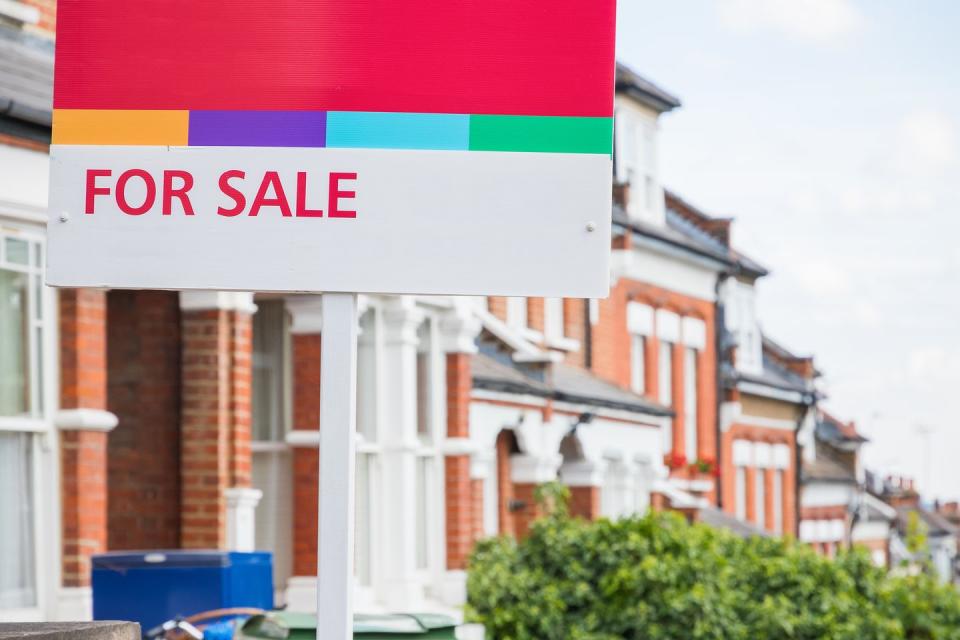What should couples check before buying a home together?

Buying your first property together is a major milestone for any couple, and although choosing the correct ownership structure of your dream home might seem like a technicality, the wrong choice now could cause you serious legal and financial issues in the future.
Last year saw a huge 60 per cent increase in the number of cohabiting couples buying property together, according to a recent survey of mortgage applicants. This rise supports the continuing trend of friends, family and cohabiting couples pooling their deposits and income to get a foot on the property ladder.
Couples who are not married or in a civil partnership have different options for structuring their legal ownership of a property, while protecting their legal and financial interests. Here's everything you need to know...
Joint ownership of a property: what are the benefits?
The most obvious benefit of joint ownership is that it gives people the opportunity to combine their savings towards a larger deposit, and combine their income to qualify for a bigger mortgage. Joint buyers can afford a bigger, more desirable property, or in a better location.
Joint ownership can also be structured to ensure that each owner's contribution to the deposit or mortgage is reflected in the share of ownership, or to ensure that owners are protected by a 'right of survivorship' if one owner dies.
Exactly what legal protections you and your co-owners have will depend on whether you jointly own as Tenants in Common or Joint Tenants.

Joint Tenancy or Tenancy in Common?
When you buy a property with one or more other people, your solicitor will ask whether you want to buy the property as Joint Tenants or Tenants in Common. The legal implications of this choice will have a major effect on each owner's rights and financial interest regarding the property.
You and your co-owner(s) should discuss your plans and expectations with your solicitor, so they can advise you on which form of ownership best fits your needs. Your solicitor may also recommend you draw up a legal agreement to cover specific points.
• Joint Tenancy
If you are buying with your partner, Joint Tenancy may be the better option. Joint Tenancy ensures that, in the event one owner dies, their ownership of the property passes automatically to the other owner. This is called Right of Survivorship. This process also avoids probate and inheritance tax issues.
Joint Tenants all own the property together, rather than owning individual shares. Although taking this approach is simpler at the outset, Joint Tenancy does not reflect any difference in the financial contributions made by different owners. All Joint Tenants have the same rights over the property, even if they never contribute anything towards mortgage payments, bills or upkeep.

• Tenancy in Common
If you and your partner want to maintain financial independence, Tenancy in Common will usually give you more flexibility. Tenants in Common each own a specific share of the property. Ownership shares can be split equally or divided up, for example, to reflect different levels of financial contribution to the mortgage or deposit.
Unlike Joint Tenants, Tenants in Common do not have Right of Survivorship. This means that if one owner dies, their share in the property will not automatically pass to the other owner(s). The deceased's share can be inherited by someone who isn't currently an owner, and there may be probate and tax issues to resolve.
Setting up Tenancy in Common may involve some discussion among the owners about who gets what percentage of the property. Agreeing this at the outset, however, can help to avoid problems in the future.

Is joint ownership more risky?
For many first-time buyers, joint ownership is the most practical route to property ownership. As listed above, there are other benefits for cohabiting couples jointly owning property.
The biggest risk concerning joint ownership is uncertainty. If one owner wishes to sell their share (because the relationship ends, for example) there could be disputes over ownership shares, the value of the property, and who gets to stay in the property. These issues can create additional and avoidable heartache and cost.
Fortunately, you can address these questions when you purchase the property. You can protect the legal rights and financial interest of all co-owners from the outset with a legally-binding Deed of Trust or Cohabitation Agreement.
Protecting your legal and financial interests in jointly-owned property

Depending on your circumstances and future plans, your conveyancing solicitor may recommend drawing up a legal agreement to protect the interests of parties involved in the property purchase. This agreement will help to clarify the rights and obligations of the owners, including the ownership share split.
A Deed of Trust can also be used to protect the interests of someone who is contributing to the property purchase but who won't be listed as an owner, such as a family member lending money for a deposit.
Do we need a Deed of Trust?
Sometimes referred to as a 'declaration of trust', a Deed of Trust is a legally binding document that can be used to answer a wide range of questions regarding ownership of a property. Regardless of what the future brings, this agreement will ensure that there are clear rights, obligations and processes in place to protect the interests of all owners.
A Deed of Trust can be used to address issues like:
Who owns what share
What happens when an owner wishes to sell
How the property (or an owner's share) is valued
Who gets what when the property sells
What happens when an owner dies
Who can inherit an owner's share
Who is responsible for what percentage of mortgage repayments
What happens if an owner cannot keep up their contribution
Although Deeds of Trust are usually (even necessary) documents to clarify ownership issues, if you are buying with your partner, and you are not in a civil partnership or married, a Cohabitation Agreement may also be suitable.

Do we need a Cohabitation Agreement?
Sometimes called a 'Living Together Agreement' or 'No-nup', a Cohabitation Agreement can cover the same issues as a Deed of Trust, and can also cover broader matters regarding cohabitation, such as:
Who pays bills, repairs and upkeep costs for the property
How bank accounts and money are handled
How other major assets like cars are handled
How debts are settled in the event the relationship ends
Who has responsibility for pets if the relationship ends
Although discussing some of these issues might seem uncomfortable, even pessimistic, a cohabitation agreement offers both parties the chance to respect and formally recognise the contributions each person makes. It's also much easier to discuss these issues with a clear head when the relationship is happy and stable,' says Chris Salmon of property legal specialist Quittance.co.uk.
'This proactive approach will help to avoid unnecessary argument, anger and even legal action in the unfortunate event of a break-up.'
To be legally binding, a Cohabitation Agreement must be executed as a deed. This means you may need a solicitor's help to ensure the document is witnessed and formally executed correctly.

What to check before buying property with friends or family
Much of the advice above also applies to anyone buying with friends or family. Most people buying with friends will expect that someone will want to sell up at some point, and it's unlikely that everyone will want to sell at the same time. Similarly, if you are buying a property with parents, children or siblings, it's likely that the different owners will have different plans for their share in the property.
In all cases, you should have an open conversation with your co-owners to clarify everyone's plans and expectations regarding their ownership, financial contributions and concerns. Your solicitor can work with you to set out these points in a formal agreement, and identify any points of potential conflict or confusion.
If you intend to have a Deed of Trust or Cohabitation Agreement in place when you buy a property, you should discuss your plans with your solicitor as soon as possible to avoid the process delaying completion. There's no reason why you can't get the drafting process underway even before you find a property.
Follow House Beautiful on Instagram.
You Might Also Like

 Yahoo Sport
Yahoo Sport 






































